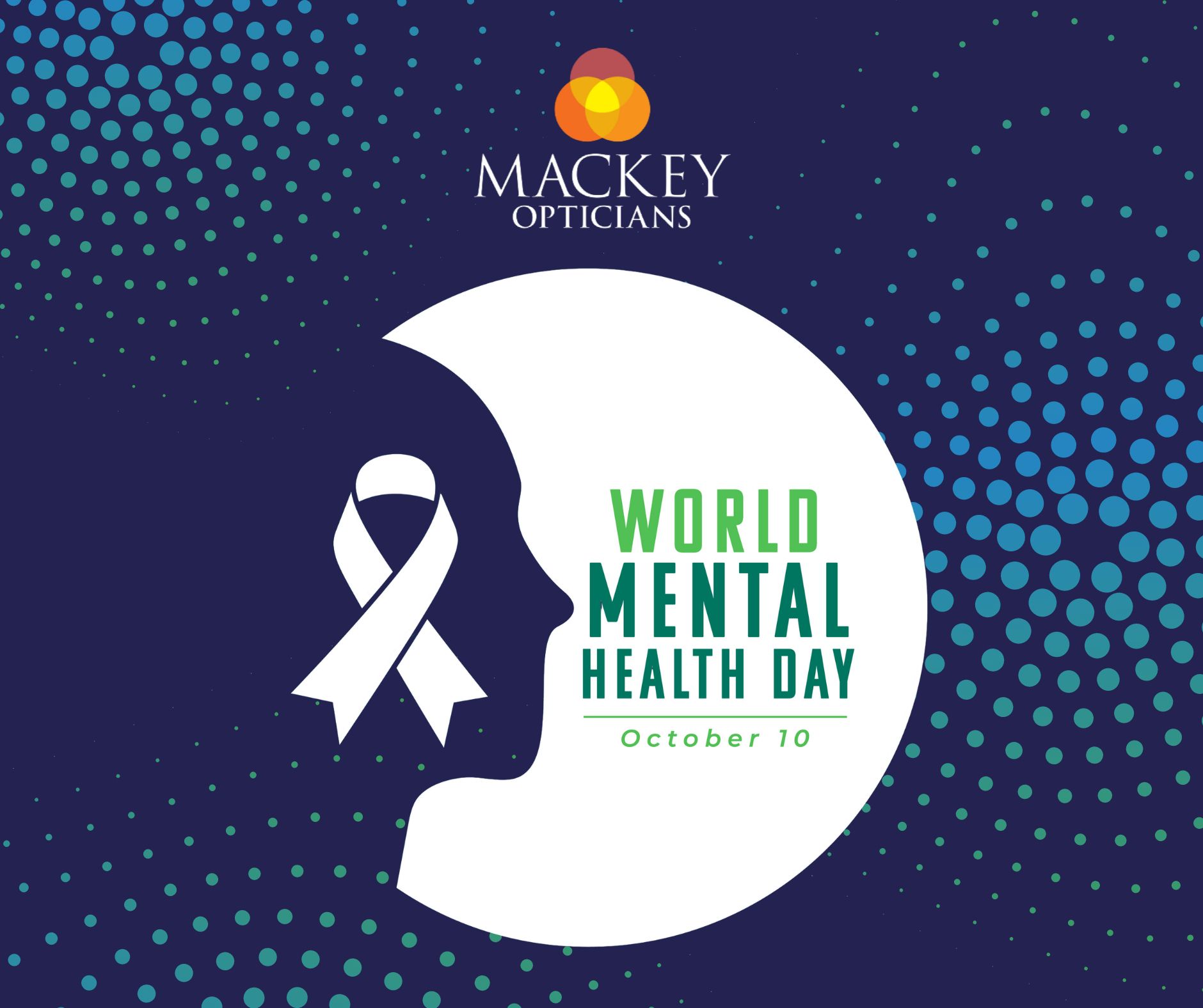The Crucial Link Between Sight, Hearing, and Mental Health
October 10th marks World Mental Health Day, a powerful reminder that our mental well-being is just as important as our physical health. At Mackey Opticians, we understand that the two are deeply connected—especially through your primary senses: sight and hearing.
The loss of function in either sense can have a profound and cumulative impact on your independence, confidence, and overall mental health.
How Sensory Loss Takes a Mental Toll
Both poor vision and hearing loss can lead to similar struggles, but when they occur together, the risk of mental health issues skyrockets.
1. Isolation and Social Withdrawal
Vision Loss: Makes it difficult to recognise faces, navigate social environments, and engage in public life, often leading to people staying home.
Hearing Loss: Turns conversations into a constant struggle. The sheer mental fatigue from straining to hear and process sound, especially in noisy group settings, causes many to avoid social gatherings entirely.
The Combined Effect: A loss in both senses makes communication and navigation incredibly challenging, drastically increasing the risk of loneliness and severe social isolation. Research shows people with dual sensory difficulties are significantly more likely to experience depression and chronic anxiety.
2. Anxiety and Fear of Loss
Vision Loss: Creates anxiety around mobility, falls, or the fear of a condition worsening.
Hearing Loss: Can cause anxiety about missing critical information, such as phone calls, alarms, or urgent warnings, and often leads to the stress of constantly misunderstanding loved ones.
The Combined Effect: This daily stress and chronic worry about safety and communication becomes a profound mental burden, contributing to persistent anxiety.
3. Depression and Loss of Independence
When you can't see or hear clearly, the most basic everyday tasks, from driving to managing a prescription or enjoying a conversation, become monumental struggles. This reliance on others can evoke feelings of helplessness and a profound sense of grief for the life you once had, which can lead to clinical depression and low self-esteem.
Take Control: Protect Your Senses, Protect Your Mind
The most powerful way to safeguard your mental well-being is to be proactive about your sensory health.
Book a Comprehensive Eye Exam: A thorough check can detect vision problems early, often before they become severe enough to spark a mental health struggle. Correcting your vision with an up-to-date prescription can immediately remove a source of daily mental strain.
Prioritize Your Hearing Health: If you find yourself frequently asking others to repeat themselves, turning up the TV volume, or struggling in restaurants, it’s time for a hearing check. Modern hearing aids are discreet and can dramatically improve communication, reducing the mental effort and social strain that drives anxiety and isolation.
Seek Support: If your sensory issues are causing you sadness, worry, or social withdrawal, please talk to your GP or a mental health professional.
Important Northern Ireland Mental Health Support Lines (HSC/NHS)
If you or someone you know is in distress or despair, please reach out to one of the confidential services below. They are available 24/7 and are free to call from UK landlines and mobiles in NI:
Service | Focus | Phone Number |
NI's 24/7 crisis response helpline for people in distress or despair. | 0808 808 8000 | |
24/7 confidential listening ear for anything that's troubling you. | 116 123 | |
24/7 support for anyone under 19 with any issue. | 0800 1111 |
This World Mental Health Day, let's recognise the interconnectedness of our body and mind. A clear view and a clear connection to the world are essential for a happy and fulfilling life.
Stay Up To Date With The Latest News
Be informed about our exclusive sales and top deals.
